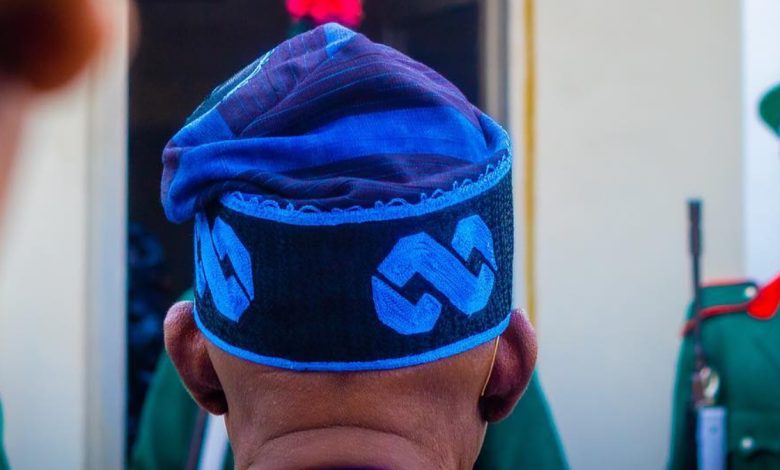Latest News
Emilokan Caps: Symbol of Tinubu’s Broken Promises
Emilokan caps symbolize Tinubu’s broken promises, Nigeria’s leadership crisis, political disappointment, and authoritarian tendencies, sparking national discontent and debate

In a scathing critique of President Bola Tinubu’s leadership, Phrank Shaibu, Special Assistant on Public Communication to former Vice President Atiku Abubakar, has condemned the symbolic downfall of Tinubu’s once-celebrated “Emilokan” caps.
Shaibu’s piece, titled “De-cap-itated!”, compares the fate of Tinubu’s broken shackle symbol to the transformation of the swastika from a symbol of good fortune into one of oppression under Nazi Germany.
“President Tinubu, in a campaign soapbox in Ogun State where he made the infamous Emilokan remarks, which is a selfish and arrogant ownership claim to power, has since made the broken shackle a symbol of oppression and political rascality,” Shaibu stated.
The Emilokan slogan, which translates to “it is my turn” in Yoruba, was once heralded as a rallying cry by Tinubu’s supporters. Caps featuring the broken shackle symbolized his promise of economic growth and human rights.
Emilokan: A Failed Promise of Prosperity
However, Shaibu’s analysis paints a starkly different picture of Tinubu’s leadership since taking office.
“Everyone now knows that Emilokan is not about shared prosperity for all but about a rabid appropriation of state assets to personal ownership,” Shaibu remarked.
He further alleged that Tinubu amassed personal wealth at the expense of Lagosians, challenging the widely held belief that Tinubu’s leadership was responsible for Lagos’ economic development.
“Tinubu didn’t build Lagos. Rather, Tinubu built his wealth through the sweat of Lagosians,” Shaibu added.
The once-popular Emilokan caps symbolize a failed promise, representing broken promises and authoritarian tendencies.
A Comparison Rejected
Shaibu also dismissed comparisons between Tinubu and the late Chief Obafemi Awolowo, an iconic Nigerian leader known for his progressive ideals.
“Everyone now knows that Tinubu is not Awolowo,” Shaibu asserted.
Shaibu believes the Emilokan caps are now relics of “political deception and disappointment.”
Ultimately, his critique underscores a broader sentiment of disillusionment with Tinubu’s presidency.
What was once seen as a beacon of hope and prosperity has become a painful reminder of missed opportunities and growing discontent with the current administration.
The fate of the Emilokan caps, much like the swastika’s transformation, reflects Nigeria’s political climate under Tinubu’s leadership.
RELATED NEWS:
